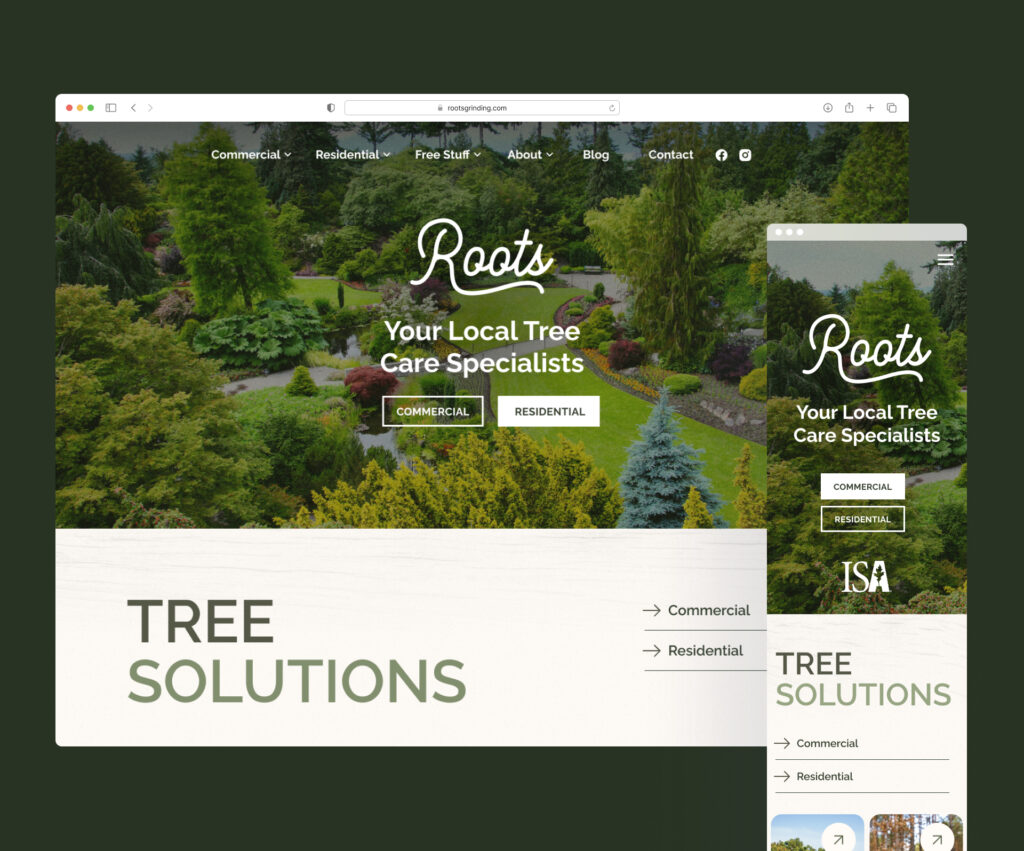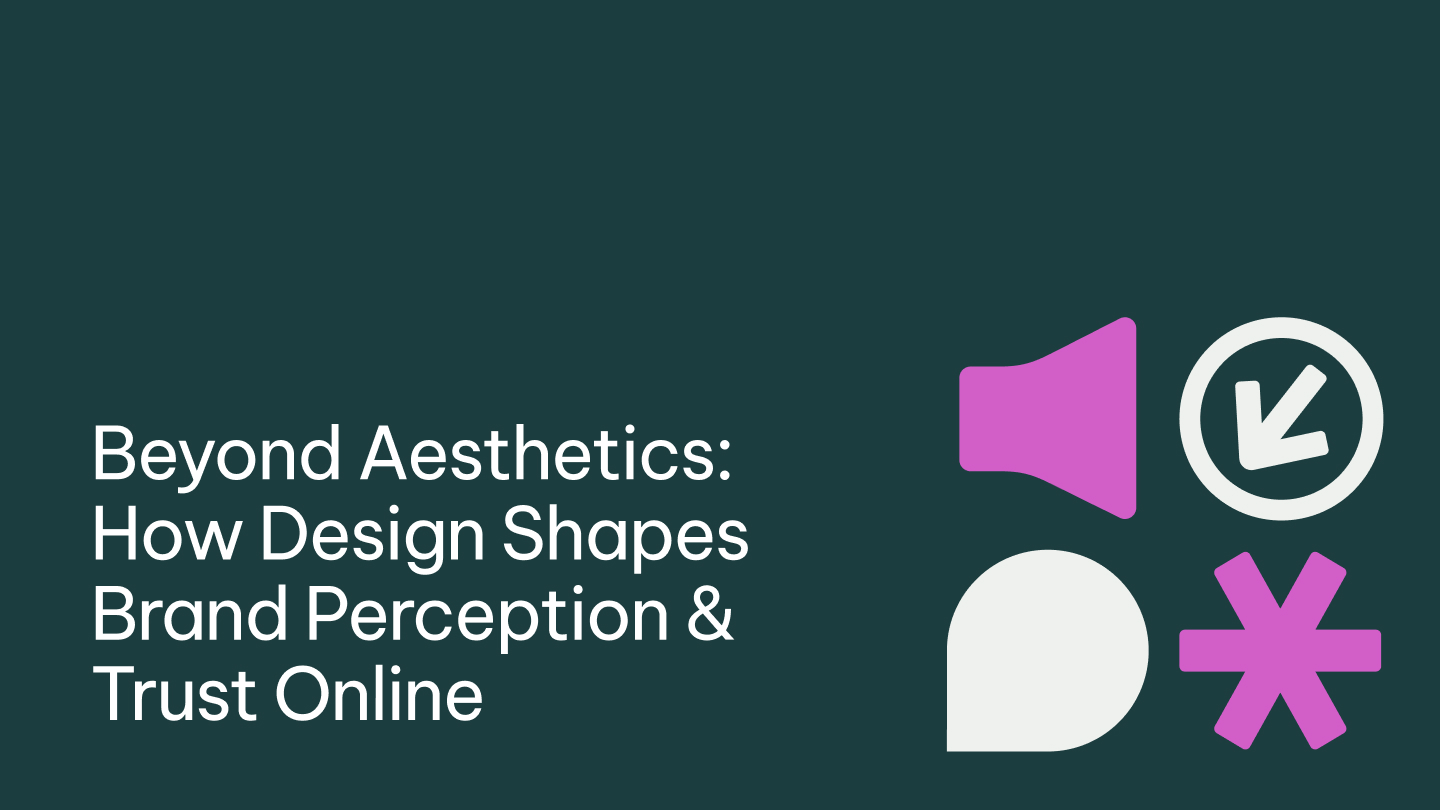Is AI replacing Google? If you’ve heard the chatter, you’re not alone. Everywhere you turn, someone is claiming “The AI revolution is here!” and business owners are understandably starting to worry. But let’s pump the brakes for a second — is AI actually taking over the way people search online?
Is AI Replacing Google?
The truth: AI search is growing in popularity, and yes, it’s changing how people get quick answers or everyday advice. But when it comes to making bigger decisions, like choosing a financial institution, hiring a lawyer, or even deciding where to buy your next mattress, people still turn to Google. Why? Because they want to compare options, read reviews, and explore websites before committing.
In this post, we’ll separate facts from fear. You’ll see why AI chatbots, like ChatGPT, haven’t dethroned Google (at least not yet), how people are really using both tools, and what your business can do to stay ahead.
TL;DR: Is AI Replacing Google
AI search tools like ChatGPT are growing fast, but they’re not replacing Google — at least not right now. People still turn to Google for research, comparisons, and big decisions, while AI is mostly used for quick answers and advice. The smartest move? Stick to SEO best practices, make small tweaks for AI visibility, and focus on creating content your audience trusts.
Where The Fear Comes From
Everyone and their brother is concerned and feeling very overwhelmed about AI right now, including me! Every week there seems to be a new headline, flashy AI tool or a “digital strategy” company promising that if you don’t act today, you’ll be left in the dust. When you’re running a business and already juggling a dozen priorities, that kind of messaging can feel very unnerving.
The reality is that fear sells — and unfortunately, some companies are leaning into that fear to market their services. They make AI sound like an overnight takeover instead of what it truly is: a gradual shift in how people find and consume information.
On top of that, AI is still new territory. There isn’t a ton of reliable data about how it will shape search long term, which naturally leaves business owners with more questions than answers. And when there’s uncertainty, it’s easy to assume the worst: Am I falling behind? Am I missing opportunities? Is my website in danger of being invisible?
These concerns are completely valid and you’re not alone in feeling them. The good news is that there are clear steps you can take right now to stay visible online without having to panic or overhaul everything you’re already doing.
How People Actually Use AI Vs. Google
One of the easiest ways to cut through the confusion is to look at how people are actually using AI compared to Google (spoiler alert: they’re not interchangeable, they serve very different purposes).
AI Search (Prompts)
Think of AI chatbots as your bubbly friend who always has a quick suggestion. People turn to AI when they want fast answers, everyday advice, or a neat little summary to save them time.
- “What’s a healthy dinner idea?”
- “Can you explain inflation like I’m five?”
- “Write me a birthday toast for my dad.”
The cool (and sometimes frustrating) thing about AI is that it’s highly personalized. Results can change depending on the way you phrase your question, the context you provide, and even the AI tool you’re using. No two answers are guaranteed to be exactly alike, which makes it fun for brainstorming, but less reliable for decision-making.
It’s also worth noting that AI doesn’t create information from scratch — it pulls from existing websites. That means if the content it references is outdated, biased, or just plain wrong, the AI’s answer could be too. It’s why AI is great for sparking ideas or giving you a quick overview, but not always the best source for critical or highly accurate information.

Google Search (Queries)
Now, when it’s time to make a real decision, like choosing a restaurant, comparing service providers, or researching a product, people head straight to Google. Why? Because Google gives you options, consistency, and the ability to compare one choice against another.
- “Authentic Mexican restaurants near me”
- “Local pest control companies in Kansas City”
- “Best summer festivals in Chicago 2025”
These are searches with intent. Google offers reviews, maps, websites, and side-by-side comparisons, which is exactly what people want when they’re about to spend money or commit to a service.
Another big advantage? It’s easier to fact-check information on Google. Articles often cite their sources, and you can cross-reference details against credible domains like .edu, .gov, or .org websites. That extra layer of transparency helps people feel more confident that the information they’re basing decisions on is accurate — something AI, with its black box* answers, doesn’t always provide.
*“black box” is a term used in tech to describe something where you can see the output (the answer you’re given) but not the inner workings (how it was decided or where the info came from)

The Takeaway
AI helps with the quick hits, while Google helps with the big decisions. Both are useful, but they’re not competing for the same job — which means that your business doesn’t need to fear AI “replacing” Google anytime soon.
Here’s a table that helps visualize the difference between the two:
| AI Search (Prompts) | Google Search (Queries) |
|---|---|
| Quick answers and everyday advice | Research, comparisons, and purchase |
| Great for summaries, explanations, or brainstorming | Best for finding businesses, products, and services |
| Results vary depending on the prompt and user | Results are consistent across most users |
| Personalized, conversational responses | Standardized list of links, reviews, and resources |
| Example Prompt: “What’s a healthy dinner idea?” | Example Query: “Best health food restaurants near me” |
| Example Prompt: “Explain liability in simple terms” | Example Query: “Injury lawyers St. Louis” |
Why Google Still Rules (For Now)
If we haven’t made it clear by now, Google is still king of the search world. While AI has gotten a lot of buzz lately, Google continues to handle the vast majority of online searches across the globe and that’s not changing overnight.
Here’s what the numbers look like:
- Google searches in 2024: More than 5 trillion total (about 14 billion per day)
- Google’s market share: 93.57%
- ChatGPT search-like prompts: About 37.5 million per day — just 0.25% market share
- Google vs. ChatGPT: Google handled 373x more searches than ChatGPT last year
- Other competitors: Bing (4.10%), Yahoo (1.35%), DuckDuckGo (0.73%) — all higher than ChatGPT
- Growth: Google searches actually grew by 21.64% from 2023 to 2024
Read the full report: New Research: Google Search Grew 20%+ in 2024; receives ~373X more searches than ChatGPT
Pretty eye-opening, right?
Consumer behavior backs this up. When people are ready to make a big decision, like hiring a therapist or buying a home, they want more than a quick one-off answer. They want to compare websites, check out reviews, and weigh their options before making a choice. Google makes that process easy by giving them a list of businesses, articles, and resources to explore.
Your Website Still Matters
AI can provide a summary, but it doesn’t replace the need for a strong, optimized online presence. In fact, AI often pulls from websites like yours to generate its answers. So the better your site is optimized, the more visible you’ll be (not just on Google, but in AI results too).
The bottom line: Google is still the go-to place for consumers making important decisions. AI may be growing, but the data shows it’s nowhere close to overtaking Google. Having a well-built, SEO-friendly website remains the most reliable way to get found.

This is a website that we designed and developed for Roots Tree Service → Ready full case study.
The Role Of SEO In The Age Of AI
The good news is that SEO isn’t going anywhere! Despite all the noise around AI search (AEO, GEO, etc.), the fundamentals of optimization are still the same and they’re still the most reliable way to get your business found online. Things like schema markup, high-quality content, and smart internal/external linking remain the backbone of visibility.
That said, a few small tweaks can give you an extra edge in AI results. Adding TL;DR summaries to blog posts, building out FAQ sections on key landing pages, and including author bios to showcase credibility are simple ways to make your content more AI-friendly.
If you want to dive deeper into specific strategies, check out these posts:
- SEO Isn’t Dead—It’s Just Smarter: AIO, AEO & GEO Explained
- How AI Has Changed SEO In 2025 And Beyond
- Why AI Isn’t Stealing Your Job: It’s Promoting You
There’s Still A Lot We Don’t Know
Despite all the predictions out there, no one has a crystal ball. While we can say with confidence that AI hasn’t overtaken Google right now, we also can’t promise it will never happen. Search is evolving, and like every big shift in technology, the landscape could look very different five or ten years from now.
The challenge is that data around AI search’s impact is still limited. A few new tracking tools have started popping up in the marketplace, but they’re far from perfect, and the numbers we do have only tell part of the story. This makes it tough to measure exactly how AI search is changing user behavior or website performance.
What we do know is that this transition is gradual, not overnight. People aren’t abandoning Google in droves; they’re experimenting with AI for certain types of queries while still relying heavily on Google.
So instead of buying into the “AI is replacing everything” panic, the smartest move is to stay grounded in what we can see right now. That means continuing to follow SEO best practices, monitoring new trends as they emerge, and making thoughtful adjustments along the way.
Key Takeaways: Is AI Replacing Google
- AI and Google serve different purposes: AI is for quick hits, Google is for big decisions.
- Google still dominates search with a 93%+ market share and billions of searches daily.
- AI often pulls its answers from optimized websites — meaning SEO is still critical.
- Data on AI search is limited, and its impact is still unfolding gradually.
- Future-proofing your business means staying consistent with SEO while adapting smartly to new trends.
We Can Help You Future-Proof Without Fear
Our team practices something called “holistic SEO”, an approach to search engine optimization that focuses on improving every aspect of a website, including AI. We track the changes, test what’s working, and filter out the noise so you don’t have to. Instead of chasing every shiny new promise, we focus on strategies that will stand the test of time and position your site to take advantage of new opportunities as they emerge.
So while no one can predict the future of search with absolute certainty, here’s what you can count on: AI isn’t replacing Google right now, and your website is still your most powerful digital asset. With the right partner, you can feel confident knowing you’re prepared for today and ready for tomorrow.
Schedule a free strategy session with our team and let’s map out a plan that helps you grow without fear.
Questions: Is AI Replacing Google?
No — at least not right now. While AI-powered search tools like ChatGPT are gaining traction for quick answers and everyday advice, people still rely heavily on Google when it comes to major decisions, research, comparisons, and exploring options.
AI is typically used for casual prompts—think brainstorming, explanations, or fast summaries (e.g., “What’s a healthy dinner idea?”). Google, on the other hand, excels in high-intent searches like choosing a product or service, where you want side-by-side options, reviews, and deeper context.
Google continues to dominate the market with over 93% share and billions of searches daily. In contrast, AI tools like ChatGPT account for only a fraction of that (about 0.25%). That sheer volume, paired with Google’s ecosystem of reviews, maps, and rich results, keeps it first choice for decision-making searches.
Quite the opposite—your website still matters. AI often pulls content from optimized sites, meaning solid SEO only increases your chances of being referenced in AI-generated answers. SEO remains a foundational strategy for visibility across both AI and Google search.
Keep following SEO best practices—think schema markup, quality content, and smart internal/external linking—but also tweak your content for AI visibility. Add TL;DR summaries, well-structured FAQ sections, and author bios to make your content more AI- and user-friendly.



